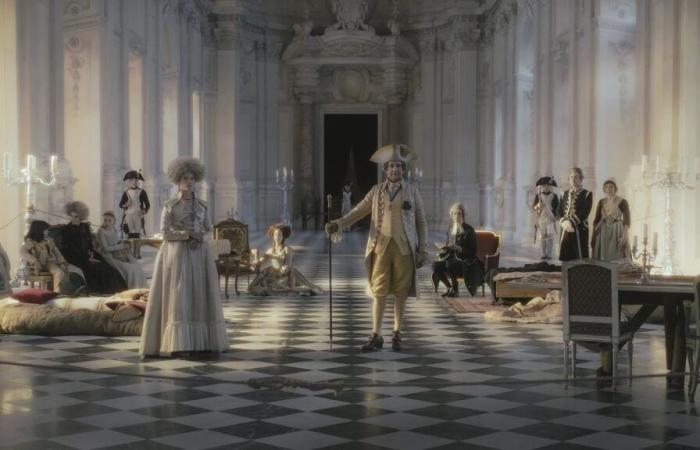Mélanie Laurent as Marie-Antoinette, that was not obvious, but what about Guillaume Canet (who endured 4 hours of daily makeup) in the role of Louis XVI, no one had imagined him, except Gianluca Jodice, the filmmaker Neapolitan who notably filmed the Making of La grande Belleza. The beginning of The Flood, with its wide shots, is reminiscent of Sorrentino, before intimacy takes over to recount the last days of the royal couple, who became the Capet citizens. Although based on the memoirs of the king's valet, the film is more metaphysical than historical, says its director. However, we remember the silences more than the conversations between Louis and Marie-Antoinette who experience their “personal apocalypse” in very different ways. We will not pretend that the vision of the story on these two figures will surprise: despite his clumsy appearance, Louis XVI displays an intelligence made of simplicity and his wife, quite unsympathetic, retains all her aristocratic arrogance. What is the point of a new film on a subject that has already been covered so much in cinema and in books? This is undoubtedly the question that we could ask ourselves when looking at The Flood. For its opening and some inspired, even surprising scenes (the rape, the executioner and the king), more than for the interpretations, we can describe the film as relatively pleasant to watch. The Capets, cut!






